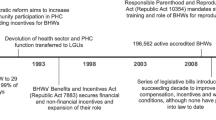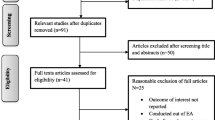Abstract
In Spain, immigrant women have high rates for initiating breastfeeding. In contrast, the case of immigrant Chinese mothers stands out, due to the low rate. In China, breastfeeding has historically been the cultural norm. An ethnographic study was conducted to explore aspects related to the low rate of breastfeeding. Field observations and informal interviews were conducted in two hospitals and a primary care center. Semi-structured interviews were performed with Chinese mothers and health workers. Among Spanish health workers, there is a belief that Chinese women do not breastfeed due to cultural reasons. The rapid return to work and the popular phenomenon of sending babies back to China for grandparents to raise constitute barriers for breastfeeding. Although in China breastfeeding is common practice, in Madrid the prioritization of productivity over reproduction and the existence of the so-called “satellite babies” and transnational maternity make the establishment and maintenance of breastfeeding difficult.
Similar content being viewed by others
References
World Health Organization. A systematic review. The optimal duration of exclusive Breastfeeding. Geneva: World Health Organization; 2002. Retrieved from http://www.who.int/nutrition/topics/exclusive_breastfeeding/en/.
Schanler RJ. Infant benefits of breastfeeding. UpToDate; 2013.
Fisk CM, Crozier SR, Inskip HM, Godfrey KM, Cooper C, Roberts GC, Robinson SM. Breastfeeding and reported morbidity during infancy: findings from the Southampton women’s survey. Matern Child Nutr. 2011;7(1):61–70. doi:10.1111/j.1740-8709.2010.00241.x.
Quigley MA, Kelly YJ, Sacker A. Breastfeeding and hospitalization for diarrheal and respiratory infection in the United Kingdom millennium cohort study. Pediatrics. 2007;119(4):e837–42.
Quigley MA, Hockley C, Carson C, Kelly Y, Renfrew MJ, Sacker A. Breastfeeding is associated with improved child cognitive development: a population-based cohort study. J Pediatr. 2012;160(1):25–32. doi:10.1016/j.jpeds.2011.06.035.
Jedrychowski W, Perera F, Jankowski J, Butscher M, Mroz E, Flak E, Sowa A. Effect of exclusive breastfeeding on the development of children’s cognitive function in the Krakow prospective birth cohort study. Eur J Pediatr. 2012;171:151–8. doi:10.1007/s00431-011-1507-5.
Whitehouse AJO, Robinson M, Li J, Oddy WH. Duration of breast feeding and language ability in middle childhood. Paediatr Perinat Epidemiol. 2011;25(1):44–52. doi:10.1111/j.1365-3016.2010.01161.x.
Tidswell E, Langley-Evans S. The health benefits of breastfeeding on the risk of children developing allergic asthma. J Human Nutr Diet. 2011;24(3):307. doi:10.1111/j.1365-277X.2011.01175_39.x.
National Statistics Institute [Instituto Nacional de Estadística]. INEbase. Demografía y población; 2015. Retrieved 15 April 2015. http://www.ine.es.
García MA, Ros O. Factores socioculturales y perinatales relacionados con la lactancia materna exclusiva. Enfermería Clínica. 2010;20(2):109–13.
Oves B, Escartín L, Samper MP, Cuadrón L, Álvarez ML, Lasarte JJ, Rodríguez G. Immigration and factors associated with breastfeeding. CALINA study. Anales de Pediatría (Barc). 2014;81:32–8.
Romagosa C, Sagué M, Garatea A, Burgués M. Lactancia materna. Condicionantes. Rol de Enfermería. 2003;26(5):73–6.
Verdera C, Mayor I, Nadal M, Jovani L, Gutierres P, Aguilar C. Lactancia según etnia en un centro de salud. Ágora de Enfermería. 2008;12(2):58–64.
Río I, Castelló-Pastor A, Del Val M, Barona C, Jané M, Más R, Rebagliato M, Bolúmar F. Breastfeeding initiation in immigrant and non-immigrant women in Spain. Eur J Clin Nutr. 2011;65(12):1345–7. doi:10.1038/ejcn.2011.121.
Gartner LM, Stone C. Two thousand years of medical advice on breastfeeding: comparison of chinese and western texts. Semin Perinatol. 1994;18(6):532–6.
Guo S, Fu X, Scherpbier RW, Wang Y, Zhou H, Wang X, Hipgrave DB. Breastfeeding rates in central and western China in 2010: implications for child and population health. Bull World Health Organ. 2013;91:322–31.
Xu F, Qiu L, Binns CW, Liu X. Breastfeeding in China: a review. Int Breastfeed J. 2009;4:6. doi:10.1186/1746-4358-4-6.
Nieto G. Inmigración china en España. Una comunidad ligada a su nación. Madrid: Universidad Autónoma de Madrid; 2007.
Janssen PA, Livingstone VH, Chang B, Klein MC. Development and evaluation of a Chinese-language newborn feeding hotline: a prospective cohort study. BMC Pregnancy Childbirth. 2009;9:3. doi:10.1186/1471-2393-9-3.
Chen WL. Understanding the cultural context of Chinese mothers’ perceptions of breastfeeding and infant health in Canada. J Clin Nurs. 2010;19(7–8):1021–9.
Zou Q, Younger KM, Kearny JM. An exploration of the knowledge and attitudes towards breastfeeding among a sample of Chinese mothers in Ireland. BMC Public Health. 2010;10:722.
Homer CS, Sheehan A, Cooke M. Initial infant feeding decisions and duration of breastfeeding in women from English, Arabic and Chinese-speaking backgrounds in Australia. Breastfeed Rev. 2002;10(2):27–32.
Chen S, Binns CW, Zhao Y, Maycock B, Liu Y. Breastfeeding by Chinese mothers in Australia and China: the healthy migrant effect. J Human Lact. 2013;29(2):246–52. doi:10.1177/0890334413475838.
Boyle JS. Estilos de etnografía. In: Morse JM, editor. Asuntos críticos en los métodos de investigación cualitativa. Medellín: Universidad de Antioquía; 2006. p. 185–214.
Hammersley M, Atkinson P. Etnografía. Métodos de investigación. Barcelona: Paidós Ibérica; 1994.
Glassner B, Strauss A. The discovery of grounded theory: strategies for qualitative research. New York: Aldine Publishing Company; 1967.
Beltrán J, Sáiz A. Comunidades asiáticas en España. Barcelona: CIDOB; 2002.
Sáiz A. Mujeres chinas en España. El capital social y su impacto en las estrategias productivas y reproductivas. Papers. 2012;97(3):591–612.
Comunidad de Madrid. Encuesta regional de inmigración 2013. Retrieved from http://www.madrid.org/cs/Satellite?blobcol=urldata&blobheader=application%2Fpdf&blobheadername1=Content-Disposition&blobheadervalue1=filename%3DEncuesta+Regional+de+Inmigraci%C3%B3n+2013.pdf&blobkey=id&blobtable=MungoBlobs&blobwhere=1352819742331&ssbinary=true.
Betrisey D. Migración, comercio mayorista chino y etnicidad. Revista CIDOB d’Afers Internacionals. 2007;78:77–95.
Li L. Chinese mothers’ knowledge and attitudes about breastfeeding in Perth, Western Australia. Breastfeed Rev. 2003;11(3):13–9.
Portes A. Migration and development: a conceptual review of the evidence. Unpublished manuscript; 2007.
Da WW. Transnational grandparenting: child care arrangements among migrants from the People’s Republic of China to Australia. J Int Migr Integr. 2003;4(1):79–103.
Bohr Y, Tse C. Satellite babies in transnational families: a study of parents’ decision to separate from their infants. Infant Mental Health J. 2009;30(3):265–86.
Kwong K, Chung H, Sun L, Chou JC, Taylor A. Factors associated with reverse-migration separation among a cohort of low-income chinese immigrant families in New York City. Soc Work Health Care. 2009;48(3):348–59. doi:10.1080/00981380802599174.
Lee A, Brann L. Influence of cultural beliefs on infant feeding, postpartum and childcare practices among Chinese-American mothers in New York City. J Commun Health. 2015;40(3):476–83. doi:10.1007/s10900-014-9959-y.
Author information
Authors and Affiliations
Corresponding author
Ethics declarations
Conflict of interest
The authors declare that they have no financial or other conflicts of interest to declare.
Ethical Standard
The Ethical Committee of Clinical Research of Hospital Severo Ochoa in Leganés (Madrid) approved the study.
Informed Consent
Informed consent was obtained from all individual participants included in the study.
Rights and permissions
About this article
Cite this article
González-Pascual, J.L., Ruiz-López, M., Saiz-Navarro, E.M. et al. Exploring Barriers to Breastfeeding Among Chinese Mothers Living in Madrid, Spain. J Immigrant Minority Health 19, 74–79 (2017). https://doi.org/10.1007/s10903-015-0303-0
Published:
Issue Date:
DOI: https://doi.org/10.1007/s10903-015-0303-0




